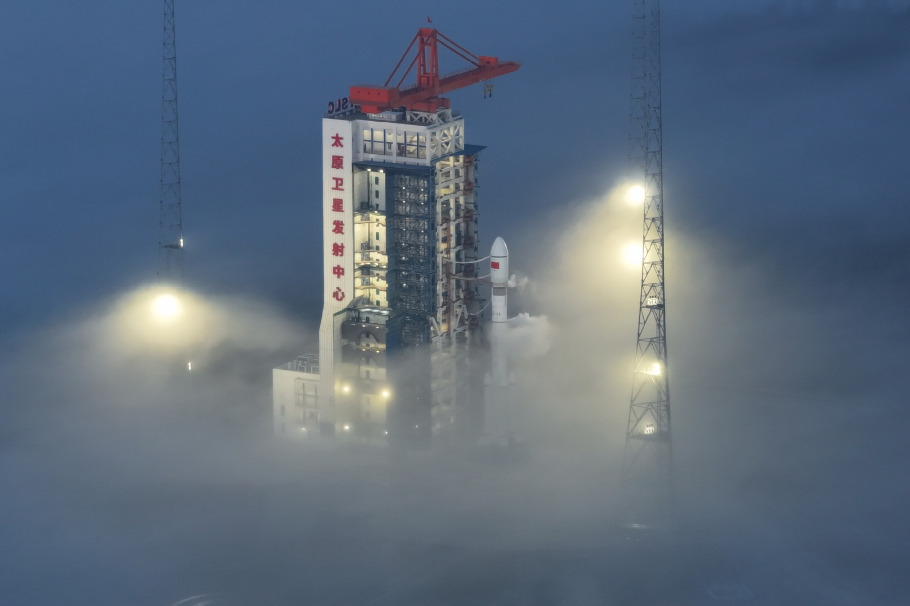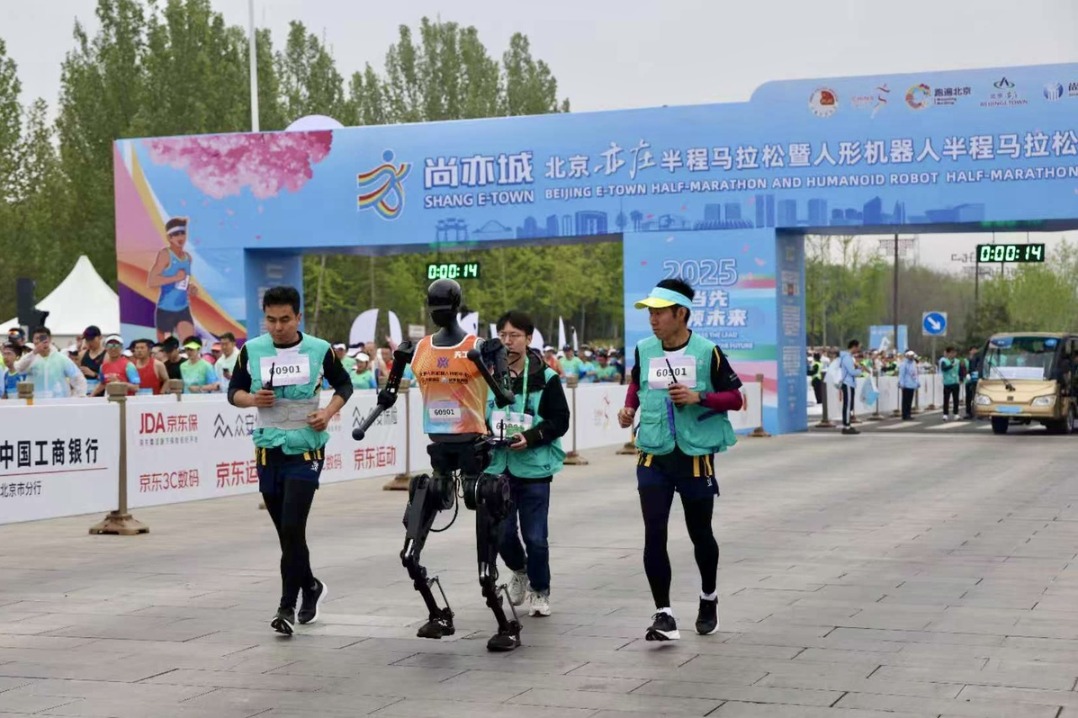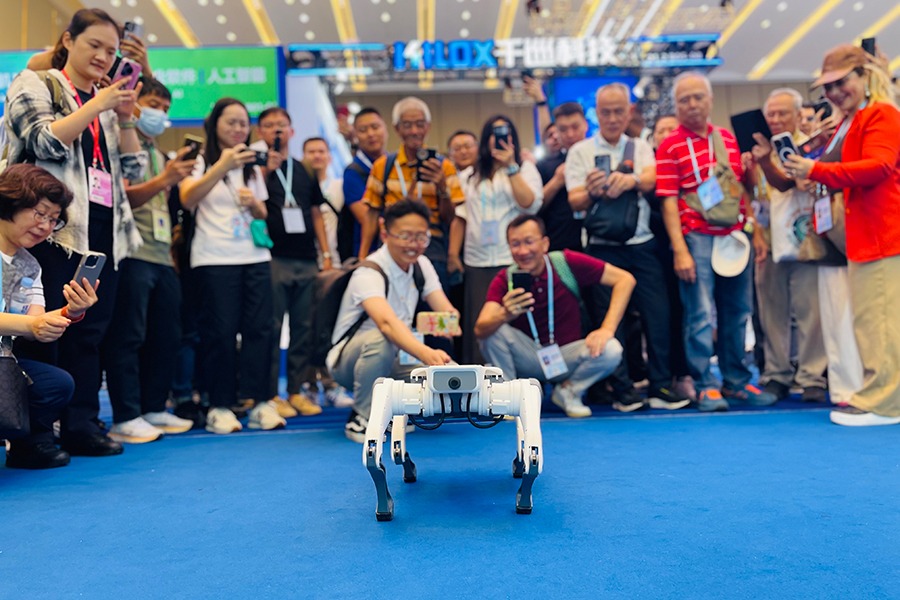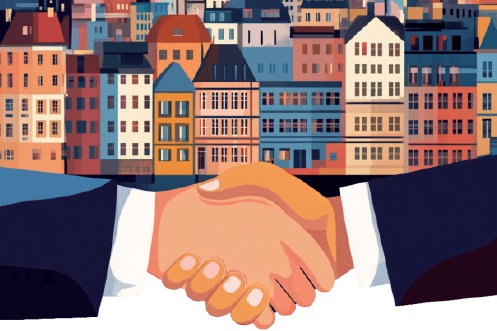Signal boost
Relationship between the EU and China is complex and multifaceted, but both sides have sent the positive message that they want it to evolve in a healthy way

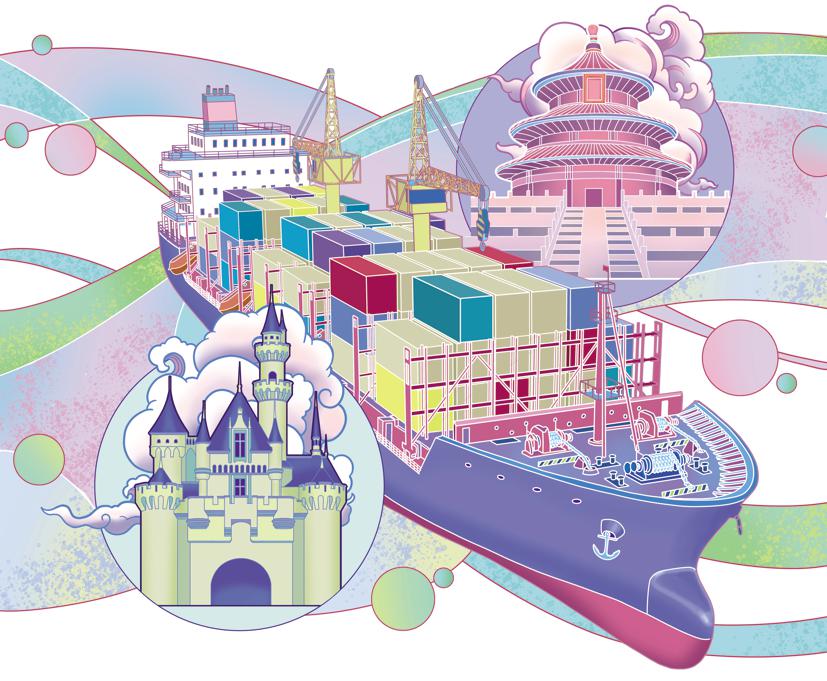
Relationship between the EU and China is complex and multifaceted, but both sides have sent the positive message that they want it to evolve in a healthy way
As the world's second-largest economy and a major global power, China is an important partner for the European Union. The EU and China have a strong economic relationship, and trade between the two sides has been growing rapidly in recent years. In July 2020, China surpassed the United States to become the EU's biggest trading partner. In 2021, the EU and China traded goods worth about 696 billion euros ($755 billion), accounting for 16 percent of all EU trade in goods. In addition, China's share of EU trade has nearly tripled from 4.4 percent to 16.2 percent over the past 10 years. This is due to a variety of factors, including China's growing economy and the availability of goods produced in China.
Many of the EU's top companies have been eager to invest in China in spite of the disruption caused by the COVID-19 lockdowns, while European countries have become one of the most important destinations for Chinese companies in terms of foreign direct investment. China is a critical partner that can greatly influence the EU's market.
China's growing middle-income group and increasing purchasing power have led to an increasing demand for European goods and services, particularly in areas such as luxury goods, automobiles and high-tech products. This has led to increased exports from Europe to China and has created jobs and economic growth on both sides. European companies have also invested heavily in China, which has helped to create jobs and promote economic development in the country.
China's Belt and Road Initiative also presents opportunities for European countries to participate in infrastructure projects and economic development in Asia and other regions in the world. This presents new business opportunities for European companies and could also help to improve connectivity and promote economic development in the regions. The initiative also aligns with Europe's goal of improving the connectivity of its own neighborhood.
Overall, the relationship between Europe and China is complex and multifaceted. Despite the fact that China and the EU maintain a partnership, it is also acknowledged that there are several areas in which they are in competition with one another. The EU seeks to attain strategic independence and greater reciprocity in international relations, which is also applicable to the trade relationship between China and the EU. Currently, the EU holds the belief that trade and investment relations with China are characterized by significant asymmetries, including a lack of reciprocity in access to markets and an uneven playing field in certain areas. Conversely, China is seeking to transition away from its traditional economic model, striving for a more balanced path of development. Furthermore, it is essential for China to elevate its value-chain and stimulate its domestic consumption-driven market. However, as previously noted by both EU Council President Charles Michel and President Xi Jinping in their meeting in Beijing in December 2022, these challenges can be ameliorated through candid dialogues and negotiations via existing channels. It was also emphasized that international trade and investment should be governed by rules established through a reformed World Trade Organization.
Cooperation between the two sides is beneficial for both and for the world. Given that China and the EU are both prominent actors on the global stage, the manner in which they interact with one another has a significant impact on the international community. It is therefore of paramount importance that constructive cooperation between China and the EU on crucial issues is fostered. As the world continues to change and global challenges evolve, Europe and China will need to continue to work together to promote peace, stability and economic prosperity. Working together with China on global challenges such as climate change and economic inequality can also help Europe achieve its goal of strategic independence. By working together to promote sustainable development and reduce greenhouse gas emissions, Europe and China can help to address some of the most pressing issues facing the world today. Additionally, by working together to promote economic development in less developed regions, Europe and China can help to reduce poverty and promote stability.
Moreover, Europe and China can promote a level playing field in trade and investment. By ensuring that trade and investment between the two sides is based on fair competition and mutual benefits, Europe can balance its relations with any country or group of countries, which is an important aspect of strategic independence.
I also see opportunities for collaboration on regional and international security issues such as peacekeeping and counter-terrorism, in order to contribute to stability and security in the region.
In his meeting with Michel in December 2022, President Xi stated that China was "ready to strengthen strategic communication and coordination with the European side". Later, Michel's spokesperson Barend Leyts said that Michel's visit to China provided a "timely opportunity" for Europe and China to engage on matters of "common interest". From this candid, in-depth, and face-to-face meeting, both sides sent a positive message to the world, indicating that China and Europe are willing to strengthen their relationship and cooperation in various ways. This meeting has also boosted the confidence of companies from both sides to strengthen their investments in both markets, which will lead to significant opportunities in various sectors, particularly in terms of creating jobs and driving economic growth. These are exciting prospects for future stronger collaboration between the European Union and China. We are looking forward to seeing our bilateral relations evolve in the right direction in the coming years.
The author is a lawyer, a member of the Brussels Bar and chairman of the Belgian-Chinese Chamber of Commerce (BCECC). The author contributed this article to China Watch, a think tank powered by China Daily. The views don't necessarily represent those of China Daily.
Contact the editor at editor@chinawatch.cn.


















